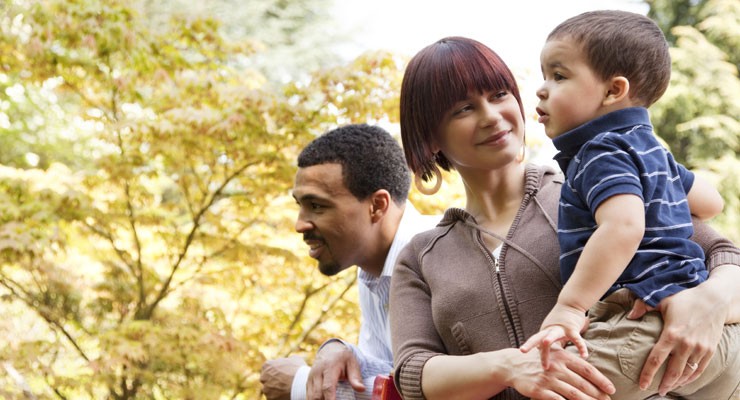Preparing Siblings for a New Baby
Tips to help you deliver the news that someone is going to be a big brother or a big sister.

Congratulations, you’re going to be a parent — again! A new baby is exciting news, but you may be nervous about how your other child or children will react.
Here are some tips for bringing up the subject with kids of all ages.
Toddlers
- They may not fully understand what it means. Still, you can let them feel your excitement as you talk about baby. Young children may ask repeatedly when the baby will arrive. They don’t have the same concept of time as older children.
- Read picture books about babies to familiarize your child with words like “baby,” “brother” and “sister.” Ask your local bookstore or library for help finding appropriate books. Point out babies with brothers and sisters and talk about how they will soon become one for the new baby.
Preschoolers
- They may not understand how to share you with others. They can be sensitive to change, so you may want to wait to break the news. But bring it up if your child starts asking about mommy’s growing tummy, or when you start buying baby furniture.
- Explain that baby will be cuddly and cute, but will also cry and need your attention. Reassure your child that you will love him or her just as much. Emphasize how they can be a “big helper” as you will depend on them to help with simple tasks like getting a baby wipe or diaper. This can help nurture a sense of competence.
- If your child is still concerned, try putting this in concrete terms: Light one candle (symbolizing the child). Use that flame to light another candle (symbolizing the new baby). Explain how the first flame got bigger using two candles — just like your love for him or her won’t decrease when the new baby arrives.
Older children
- They usually don’t feel as threatened by a new baby as younger children. Tell them about baby in terms they understand. Explain what this means and how the changes may affect them — pros and cons. Share stories of when you were expecting them and how they’ve grown into such a big boy and girl. Look at their photos over the years.
- You may want to give your older child a special gift — from you or ‘from baby’ — to celebrate the happy news.
- Put a framed family photo in their room. It’s a reminder that the new baby is a welcome addition for everyone.
More tips
Many hospitals offer classes for siblings to get ready for baby. If your child is in preschool, let the teachers know a new sibling is expected. They can often weave sibling-to-be stories into their day. Older kids may benefit from coming to your prenatal checkups. They can hear baby’s heartbeat or “peek” at baby during an ultrasound.
Delay making big changes until after baby comes. For example, you may want to wait to work on toilet training until things have settled down. It is not unusual for a child to slip up on toilet training or other areas of development with the new arrival. Don’t make a big deal; it usually disappears quickly.
They may also be clingy or have problems with separation anxiety. Reassure them they will be fine and you will see them when they return home.
By Lucy M. Casale, Contributing Editor
Sources
American Academy of Pediatrics. Preparing your family for a new baby. Accessed: July 6, 2016.
KidsHealth.org. Birth of a second child. Accessed: July 6, 2016.
Last Updated: July 6, 2016
